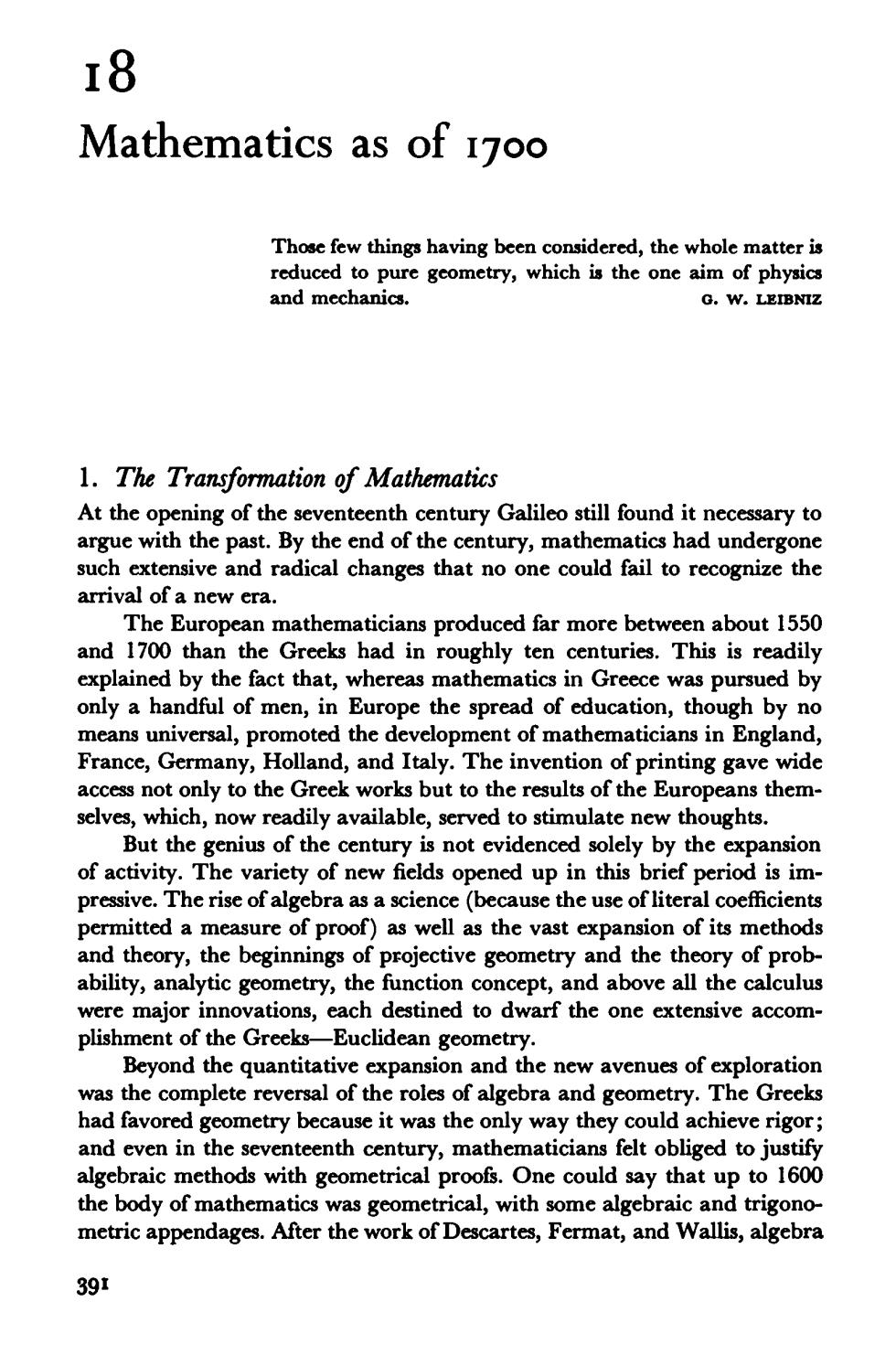正在加载图片...

18 Mathematics as of I☑oo Those few things having been considered,the whole matter is reduced to pure gcometry,which is theona of physics and mechanics. G.W.LEIBNIZ 1.The Transformation of Mathematics At the opening of the seventeenth century Galileo still found it necessary to argue with the past.By the end of the century,mathematics had undergone such extensive and radical changes that no one could fail to recognize the arrival of a new era. The European mathematicians produced far more between about 1550 and 1700 than the Greeks had in roughly ten centuries.This is readily explained by the fact that,whereas mathematics in Greece was pursued by only a handful of men,in Europe the spread of education,though by no means universal,promoted the development of mathematicians in England, France,Germany,Holland,and Italy.The invention of printing gave wide access not only to the Greek works but to the results of the Europeans them- selves,which,now readily available,served to stimulate new thoughts. But the genius of the century is not evidenced solely by the expansior of activity.The variety of new fields opened up in this brief period is im- pressive.The rise of algebra as a science(because the use of literal coefficients permitted a measure of proof)as well as the vast expansion of its methods and theory,the beginnings of projective geometry and the theory of prob- ability,analytic geometry,the function concept,and above all the calculus were major innovations,each destined to dwarf the one extensive accom- plishment of the Greeks-Euclidean geometry Beyond the quantitative expansion and the new avenues of exploration was the complete reversal of the roles of algebra and geometry.The Greeks had favored geometry because it was the ony way they could achicve rigor; and even in the seventeenth century,mathematicians felt obliged to justify algebraic methods with geometrical proofs.One could say that up to 1600 the body of mathematics was geometrical,with some algebraic and trigono- metric appendages.After the work of Descartes,Fermat,and Wallis,algebra 391